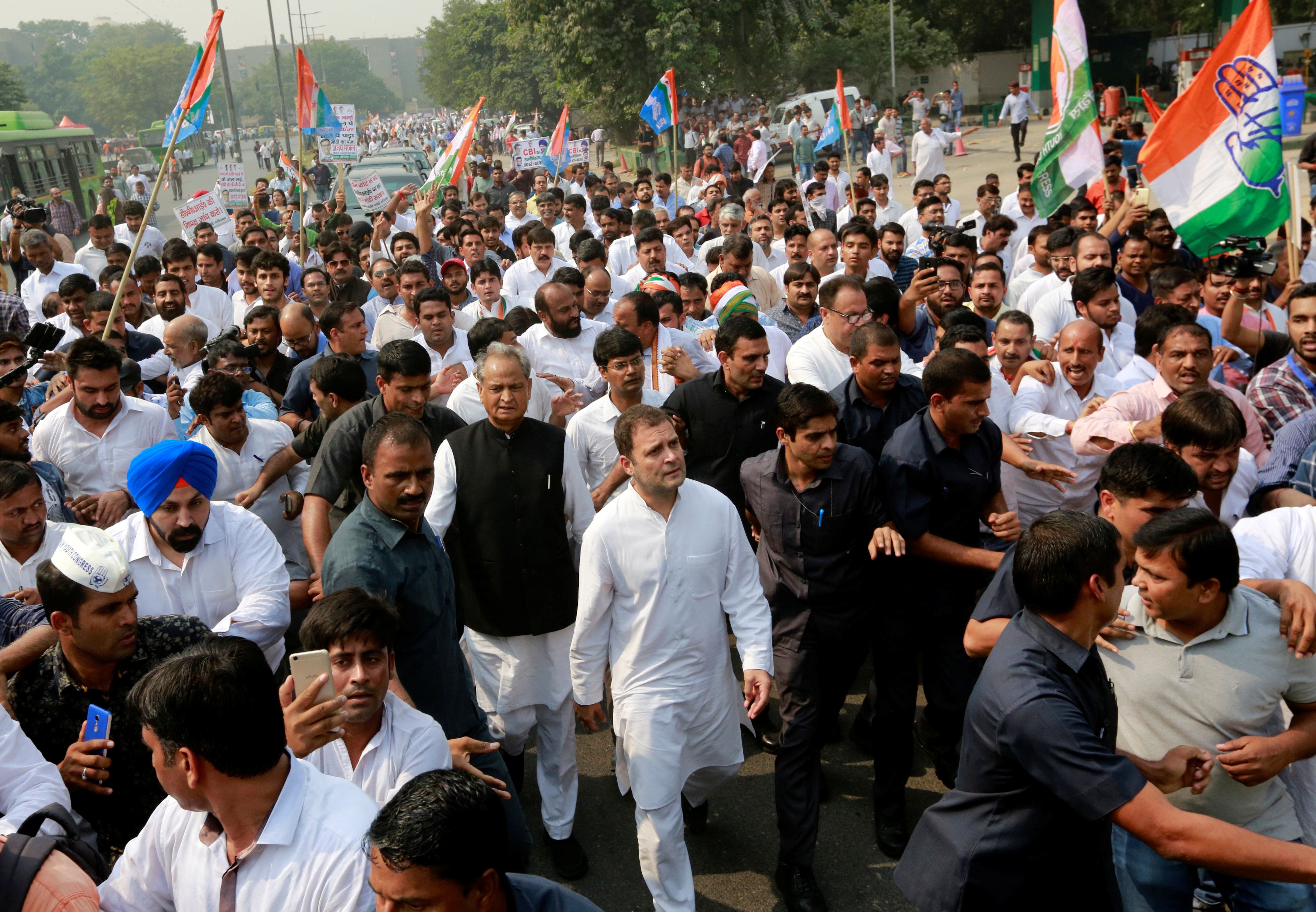January 30, 2019
A political battle is brewing in India over a proposal to implement one of the world's boldest experiments in poverty alleviation. On Monday, the leader of the country's opposition Congress Party, Rahul Gandhi, pledged to deliver a guaranteed income to every poor citizen in India if his party wins a parliamentary election set for later this year.
The proposal, if implemented, would be by far the largest ever government attempt to guarantee citizens' incomes. Around 50 million Indians, or 3.5 percent of the population, live in extreme poverty today, earning less than $1.90 per day. The scheme would likely extend beyond the poorest of the poor.
Guaranteed income has been gaining steady support in India for years, in part because it's seen as a silver bullet for rampant corruption and government waste. Under India's current byzantine welfare scheme, around 36 percent of all government assistance doesn't make it into people's pockets. Basic income proponents believe that number could be reduced by moving toward a simpler and more direct transfer system.
Mr. Gandhi didn't clarify who would receive the new benefit, and one of the biggest challenges will be determining which segments of the population qualify. Just this week, a former advisor to the current Modi government offered a similar proposal that would see 75 percent of rural households receive around $250 from the government each year. The scheme would cost a fairly manageable 1.3 percent of GDP, which could be balanced by cuts to other social welfare programs.
But with a big election looming, the debate over guaranteed income in India is as much about political maneuvering as good governance. The opposition's announcement was strategically timed to underscore their generosity ahead of the release of a government budget expected to be chock-full of popular handouts. The rural voters who would benefit most from the proposal turned out in big numbers for the Congress Party in a recent spate of state-level election victories that's brought them back from the political wilderness.
The call for guaranteed income is now set to be a defining issue in India's upcoming election season. It will be an important test case for politicians around the world who see it as a possibly transformative policy solution.
From Your Site Articles
More For You
Mastercard Economic Institute's Outlook 2026 explores the forces redefining global business. Tariffs, technology, and transformation define an adaptive economy for the year ahead. Expect moderate growth amid easing inflation, evolving fiscal policies, and rapid AI adoption, driving productivity. Digital transformation for SMEs and shifts in trade and consumer behavior will shape strategies worldwide. Stay ahead with insights to help navigate complexity and seize emerging opportunities. Learn more here.
Most Popular
- YouTube
Despite a ceasefire in Gaza, Israel is still not letting foreign journalists in to independently verify what’s happening on the ground, CNN’s Clarissa Ward tells Ian Bremmer on GZERO World.
- YouTube
On Ask Ian, Ian Bremmer breaks down the steady escalation of US pressure on Venezuela and why direct military action is now a real possibility.
US President Donald Trump arrives to announce reciprocal tariffs against US trading partners in the Rose Garden of the White House in Washington, DC, USA, on April 2, 2025.
POOL via CNP/INSTARimages.com
From civil conflicts to trade wars to the rise of new technologies, GZERO runs through the stories that have shaped this year in geopolitics.
© 2025 GZERO Media. All Rights Reserved | A Eurasia Group media company.
